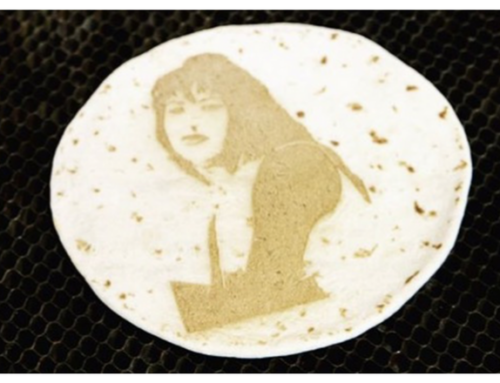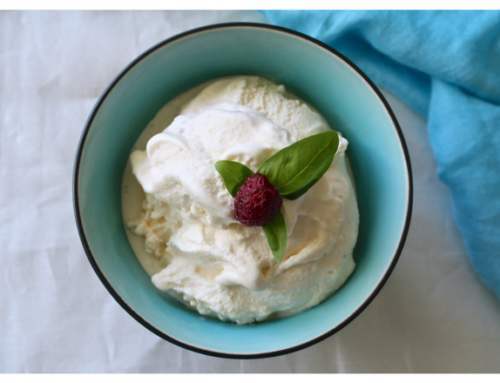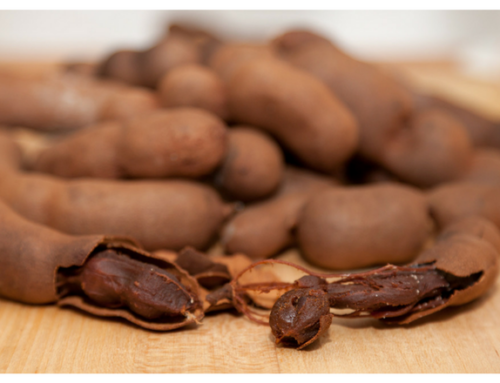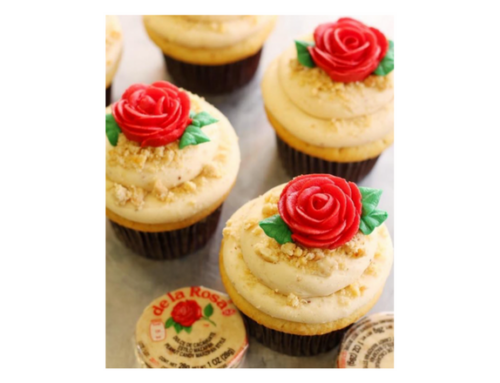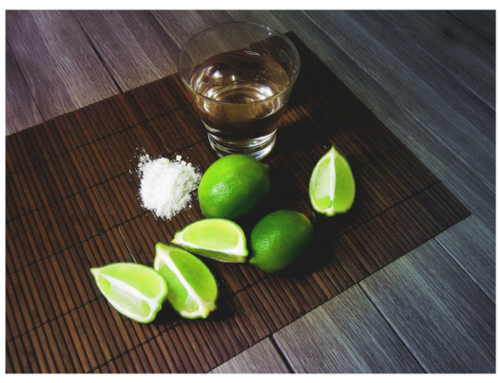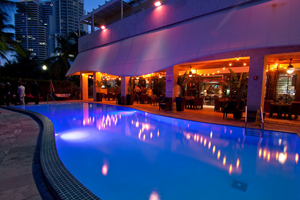 He may be referred to as the “Godfather of Nuevo Latino Cuisine,” but chef-author Douglas Rodriguez is anything but unapproachable. The only heads he’s responsible for belong to chickens and fish. When he’s not doing the chopping or cooking at his properties, Alma de Cuba in Philadelphia and De Rodriguez Cuba on Ocean (left) in Miami, the chef-owner, with his wife Nelly, is a dedicated philanthropist. This past year, he’s headed up events for everything from a fundraiser for the Chef Partnership for Miami-Dade Public Schools to LUCKYRICE Miami, a food festival that promotes Asian culture, co-hosted with Susur Lee.
He may be referred to as the “Godfather of Nuevo Latino Cuisine,” but chef-author Douglas Rodriguez is anything but unapproachable. The only heads he’s responsible for belong to chickens and fish. When he’s not doing the chopping or cooking at his properties, Alma de Cuba in Philadelphia and De Rodriguez Cuba on Ocean (left) in Miami, the chef-owner, with his wife Nelly, is a dedicated philanthropist. This past year, he’s headed up events for everything from a fundraiser for the Chef Partnership for Miami-Dade Public Schools to LUCKYRICE Miami, a food festival that promotes Asian culture, co-hosted with Susur Lee.
The big-hearted chef feels the need to give back. “If I can take 20 hours to plan something like this [Chef Partnership for Miami-Dade Public Schools] and help a couple of families, it means a lot," Rodriguez said.
"Last year, we raised $25,000 and helped one family in particular that was living in a car. Another family was in a bad way because the mother was deceased. These kinds of stories touch me. Our [chefs’] kids go to public schools. So if we can do something and get all of our connections together, why not?”
Rodriguez is generous with his time for several reasons, not the least of which is the assistance he received when he was young. An unusually precocious cook, he showed an interest in culinary arts in childhood. By thirteen, he was concocting original recipes; at fourteen, he was working a hotel kitchen line as an apprentice. After graduating from the Providence campus of Johnson & Wales University, he opened his first restaurant in 1989 in Coral Gables, an upscale community in Miami. Called YUCA (Young Urban Cuban American), the restaurant was also a play on words, referencing the popular root used in Latin American cooking. The high-end Cuban cuisine was such a local and national success that Rodriguez, at age 24, won the "Chef of the Year, Miami" award from The Chefs of America and was also recognized, twice, with nominations for "Rising Chef of the Year" nominations from James Beard Foundation. He won the JBF award in 1996.
Rodriguez invented his brand of Latin fusion cuisine after leaving Miami and heading to New York to open Patria, followed by Chicama, a ceviche bar, and Pipa, a tapas bar. (All are now defunct.) But the chef, raised in Miami by his Cuban immigrant parents, missed his community. In 2004, he moved back to the Magic City and open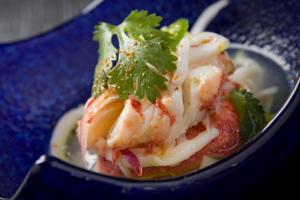 ed OLA (Of Latin America, recently closed) and De Rodriguez Cuba on Ocean in The Hilton Bentley.
ed OLA (Of Latin America, recently closed) and De Rodriguez Cuba on Ocean in The Hilton Bentley.
As gregarious host of beachfront De Rodriguez Cuba on Ocean, Rodriguez is both chef and performer, sending around his artful ceviches (which he's also written a book about, The Great Ceviche Book) and serving up crackle-skinned pig cooked in La Caja China, a “Chinese roasting box”, for happy hour. He and Nelly also run a dinner party every Thursday night, offering free Champagne and cocktails for women, cigars, fashion shows and live entertainment.
In addition to the Nuevo Latino dishes that he continues to develop, Douglas also prepares fare that speaks solidly to his Cuban background—a heritage that he reaffirmed recently when he went to Cuba for the first time ever.
“It was a foreign place to me,” he marvels. “I know more about this country or that one. I’m more familiar with the airport in Singapore. I’ve been to Thailand more times than Cuba.”
During his three weeks in the motherland, Rodriguez met up with a chef, Enrique Nuñez de Valle, who Rodriguez cooked with at Alma de Cuba. Nunez returned to Cuba after his stint with Rodriguez and opened the renowned La Guarida. The pair had cameras record their reunion, and a documentary featuring both Rodriguez and Nuñez de Valle in Cuba is in the making.
Cooking his recipes in Cuba was also more challenging than he expected. “You have to change all your money at the airport, nowhere else," Rodriguez said. "Then it would take three days to find certain ingredients or tools. Of course there’s no lamb. There’s chicken, though. Lots of chicken.”
The experience made Rodriguez, nearly 50, even more grateful for his Miami upbringing, for what he’s achieved, and for what he has yet to accomplish—under the guise of “Godfather,” or simply as a chef.
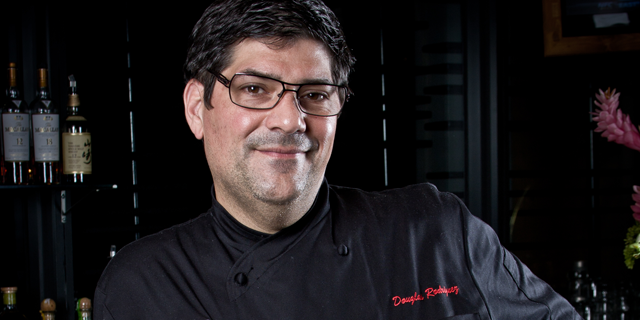
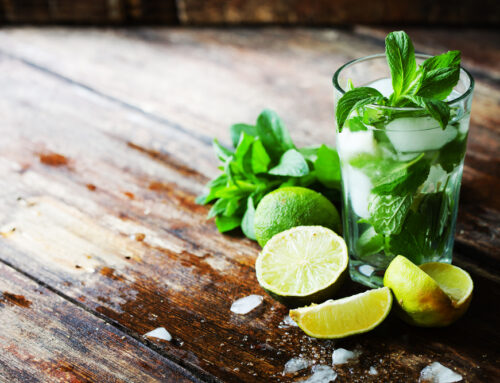
![Making Mealtime Matter with La Familia: Easy Sofrito [Video]](https://thelatinkitchen.com/wp-content/uploads/2015/10/sofrito-shutterstock__0-500x383.jpg)
![Easy Latin Smoothies: Goji Berry Smoothie [Video]](https://thelatinkitchen.com/wp-content/uploads/2015/12/goji_berry-shutterstock_-500x383.jpg)
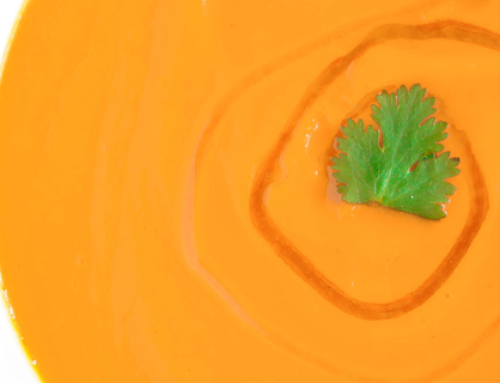
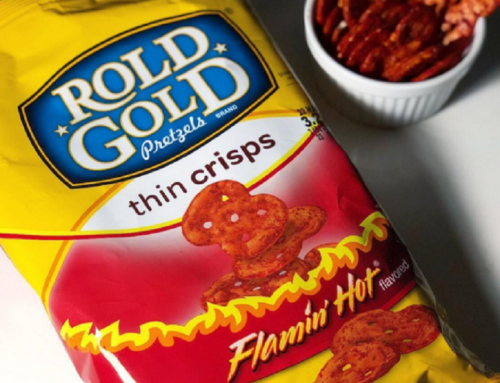
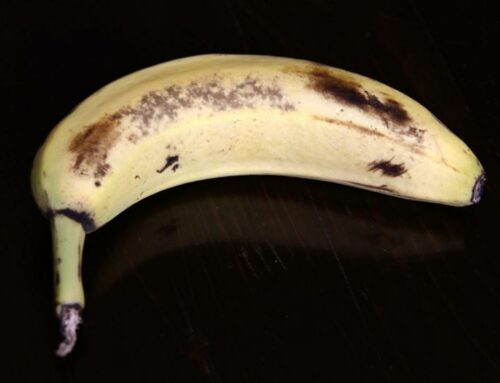
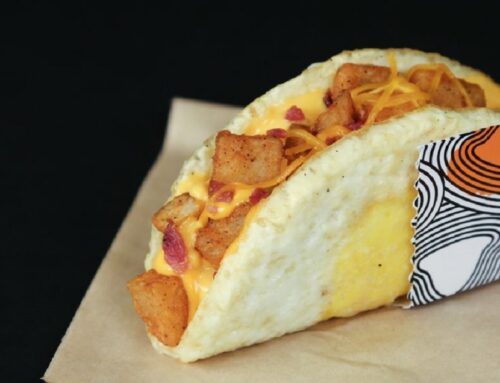

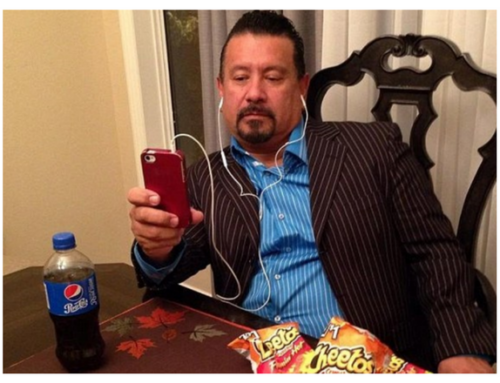
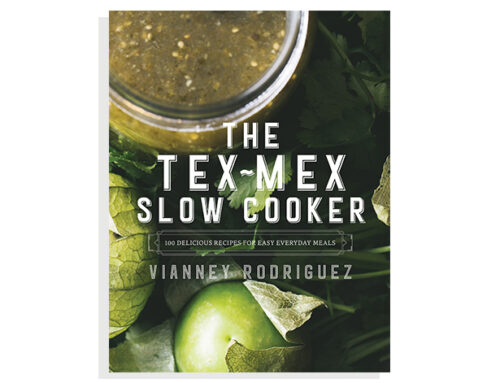
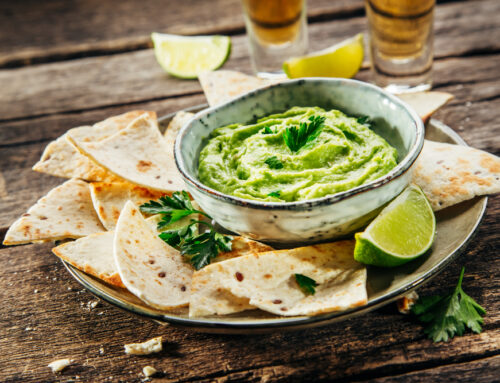
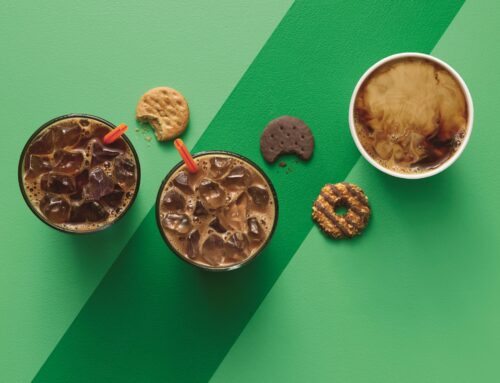
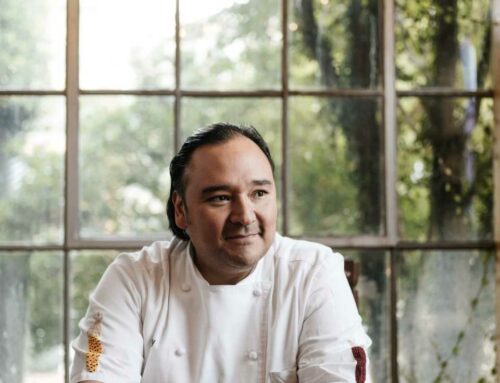
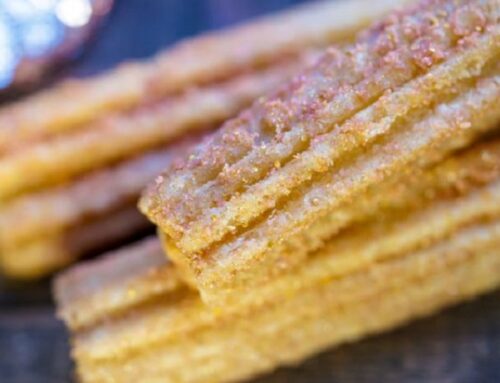
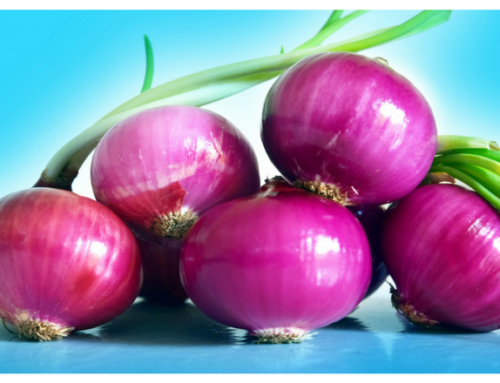




![Fun and Fast Recipes: Fiesta Cabbage Salad [Video]](https://thelatinkitchen.com/wp-content/uploads/2015/11/fiesta_cabbage_slaw-shutterstock_-500x383.jpg)
